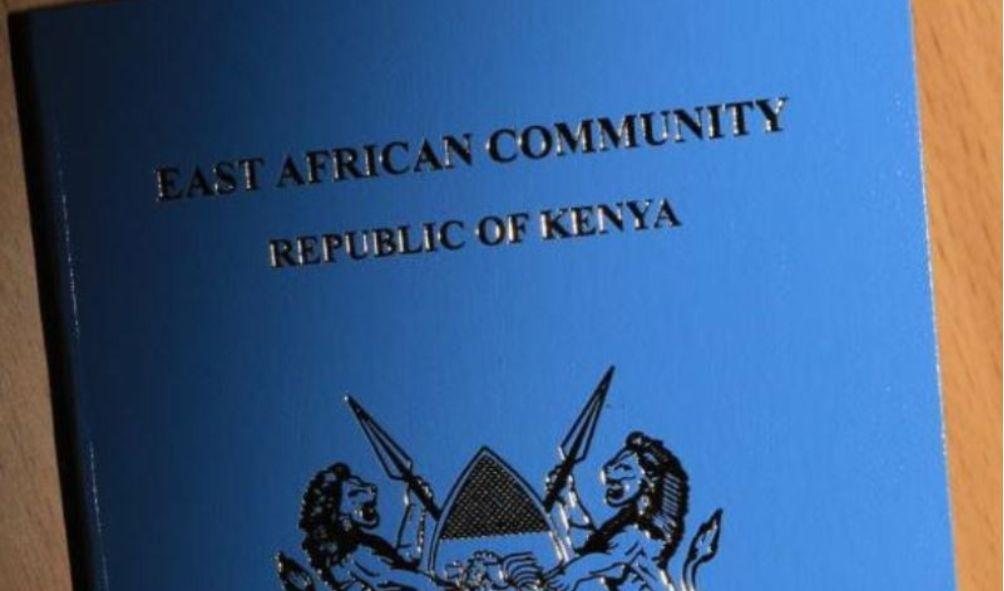NIS Gets New Role in Passport Issuance
The government has enlisted the assistance of the National Security Intelligence Service (NIS) to procure passport printing materials from abroad to address the current backlog of 724,000 applications, which continues to grow daily.
Interior Cabinet Secretary Kithure Kindiki informed Parliament that the government is encountering challenges in obtaining materials for printing passports because of global supply chain shortages.
“I have assigned the NIS to support the State Department for Immigration and Registration of Citizens to get us these travel materials,” Prof Kindiki told the National Assembly Committee on Regional Integration.
“NIS has been supporting us with the procurement of the booklets and we have made tremendous progress since then. This has also helped us cut tender wars and the attendant nonsense on urgent procurement.”
Professor Kindiki did not provide further details regarding the quantity of passports or the financial figures associated with them.
The government has previously utilized the spy agency’s services to safeguard essential equipment, indicating a recurring occurrence.
In 2020, the government enlisted the assistance of the NIS to ensure the procurement and delivery of ventilators valued at Sh300 million to the Kenya Medical Supplies Authority (Kemsa) for COVID-19 patients experiencing respiratory challenges.
A probe conducted by the Health Committee of the National Assembly found that Kemsa was supplied with Covid-19 Health Products and Technologies (HPTs) by the intelligence agency.
The investigative team examining the contentious acquisition of COVID-19 kits at Kemsa stated that they couldn’t assess the process through which NIS obtained the 100 ventilators.
Professor Kindiki expressed regret to the nation for failing to fulfill the previously stated commitment of issuing passports within seven days of application.
He mentioned that the increase in passport applications stemmed from the government’s labor exportation policy, along with disruptions in global supply chains for passport materials endorsed by the International Civil Aviation Organization. Additionally, the conflict in Ukraine has worsened the situation.
Professor Kindiki stated that the manufacturers of passport booklets are unable to fulfill the necessary supply due to changes in the production of passport security materials.
ALSO READ:
- Muturi Labels Adan Mohamed as Ruto’s Poster Boy for Deals Behind the Scenes in Sh129 Billion Scandal Involving Russians
- SEX SCANDAL AT THE ICC: Top Prosecutor Karim Khan Accused of Sexual Misconduct and Vicious Retaliation Against Staff
- Kimani Ichung’wah Urges Tharaka Nithi to Support Ruto’s Second Term for Kindiki’s 2032 Presidency
- Ndii Responds After Muturi’s Revelation of Ksh129B Russian Deal: “AG Doesn’t Sign Agreements”
- Details of Late Night Meeting to Spare Ruto from Embarrassment in Mt Kenya
“We have approached all of them (suppliers), and they have told us they can’t supply us the numbers we need to arrest the situation. We need three million booklets every 90 days for the next two years,” Prof Kindiki said.
“After that, we will then move to schools to provide all 18-year-olds and above, passports even without them applying. I am sure we will be there because every Kenyan has a right to hold a passport.”
Professor Kindiki disclosed that Kenya has a backlog of 724,000 passport applications. The suppliers of this essential travel document have stated that it will take 90 to 100 days to clear this backlog after providing the necessary materials.
He informed the committee overseen by Kipipiri MP Wanjiku Muihia that the Immigration department needs three million passport booklets every 90 days, yet suppliers can only furnish 1.5 million booklets.
“We have talked to all suppliers and they have told us that there is a worldwide shortage of passport printing materials. They are saying they can deliver all the booklets today but can only supply 1.5 million in three months,” he said.
The Chief Secretary mentioned that the Immigration Department’s significant budgetary limitations were resolved when the National Treasury approved the use of 3 billion shillings from internally generated funds to support operations and procure passport booklets.
“The Treasury has allowed the State Department of Immigration to spend Sh3 billion annually out of the Sh20 billion that it collects in appropriations-in-aid,” Prof Kindiki said.
“If we get Sh5 billion annually to the Immigration Department, the revenue collected will jump to Sh100 billion annually.”
Ms. Muhia, along with MPs Julius Ruto (Keses) and Joseph Gitari (Kirinyaga Central), questioned the Ministerial Secretary’s inability to address the backlog, corruption, and lengthy queues at Nyayo House, hindering Kenyans’ ability to pursue better opportunities elsewhere.
Professor Kindiki admitted that despite the arrest and prosecution of 17 staff members, corruption remains prevalent at Nyayo House.
NIS Gets New Role in Passport Issuance
